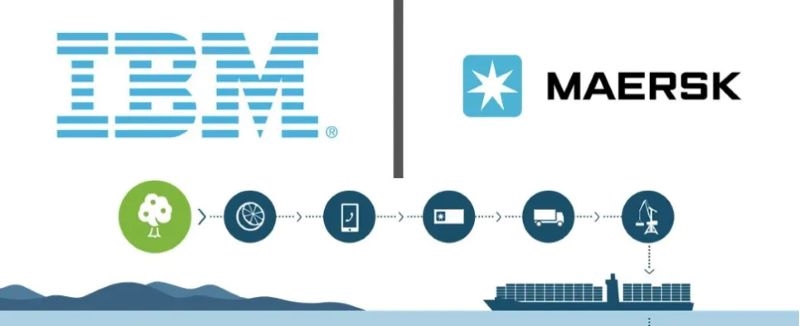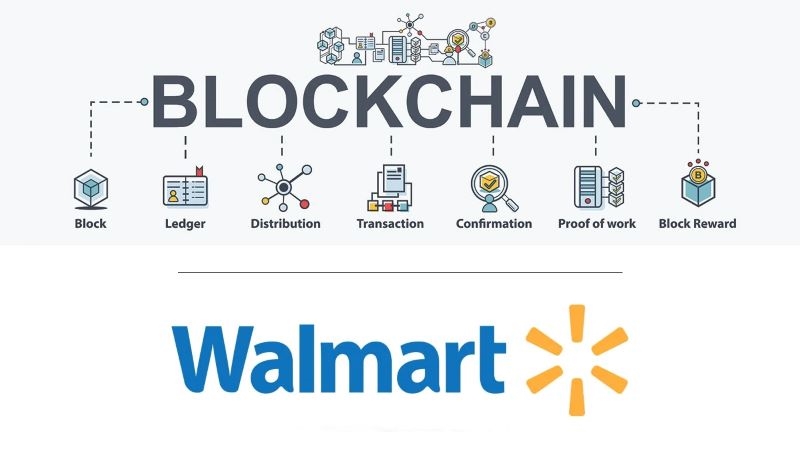Categories: Blockchain
Blockchain Partnerships: The Key to Unlocking the Full Potential of Decentralized Technology
Blockchain partnerships drive innovation by combining the strengths of multiple organizations. These collaborations enhance technological development, expand market reach, and accelerate the adoption of blockchain solutions, creating a more robust and interconnected ecosystem.
Blockchain technology is poised to revolutionize industries with transparency, immutability, and security. Achieving its full potential demands collaborative partnerships across sectors. This article explores blockchain partnerships, their significance, types, benefits, and challenges, showing how these collaborations underpin decentralized technology's potential.
Table of Contents
The Power of Partnerships
The blockchain landscape faces various hurdles, ranging from technical limitations and regulatory scrutiny to user adoption and scalability challenges. Overcoming these barriers requires a holistic approach, one that leverages the unique strengths of different stakeholders. Let's explore why partnerships are essential in unleashing the full potential of blockchain technology.
Combining Complementary Expertise
Blockchain technology is complex and requires specialized knowledge across multiple disciplines, spanning cryptography, computer science, economics, and law. This poses a significant challenge for individual organizations looking to implement blockchain solutions. However, through partnerships, organizations can pool their expertise and share resources, accelerating development and overcoming technical obstacles.

For instance, a partnership between a financial institution and a tech company would bring together the former's experience in finance and compliance with the latter's technical know-how, creating a synergistic effect that enables successful blockchain implementation. Similarly, collaborations between blockchain startups and traditional companies can result in innovative solutions that leverage both parties' expertise.
Enhancing Network Effect
In a decentralized ecosystem, network effect plays a crucial role in driving adoption and success. By partnering with other organizations, a company can tap into the partner's network, expanding its reach and establishing credibility within the industry. For instance, a blockchain startup partnering with a well-established financial institution gains access to the institution's customer base, while the institution can offer innovative solutions to its clients through the partnership.
Moreover, partnerships can enhance the overall network effect within the blockchain industry by fostering interoperability between different platforms. As more organizations collaborate and share resources, it creates a ripple effect, accelerating innovation and adoption of decentralized technology.
Overcoming Regulatory Hurdles
One of the significant challenges for blockchain technology adoption is regulatory uncertainty. The complex nature of blockchain and its implications on traditional systems make it difficult for regulators to establish clear guidelines and frameworks. By forming partnerships with regulatory bodies, blockchain companies can work together to create a conducive environment for growth and innovation.
For instance, in 2019, the European Union launched the International Association for Trusted Blockchain Applications (INATBA), bringing together government bodies, international organizations, and blockchain startups to develop a comprehensive regulatory framework for blockchain technology. Such partnerships are essential in building trust and legitimacy for the industry, ultimately driving adoption and unlocking its full potential.
Types of Blockchain Partnerships
There are various types of partnerships within the blockchain industry, each serving a specific purpose. Let's explore some of the most common forms of blockchain partnerships.
Strategic Partnerships
Strategic partnerships occur when two or more organizations come together to leverage their strengths and resources to achieve a common goal. These partnerships are usually long-term and involve shared investments, risks, and rewards. For instance, IBM and Maersk formed a strategic partnership to develop a blockchain-based shipping solution, leveraging IBM's expertise in blockchain technology and Maersk's experience in global shipping.
Consortiums
Consortiums consist of multiple organizations working together towards a shared objective. Unlike traditional consortiums, where members compete against each other, blockchain consortiums require collaboration and cooperation to achieve success. These partnerships bring together multiple stakeholders, including competitors, to address industry-wide issues and drive adoption. For instance, R3's Corda platform is a consortium of over 100 financial institutions collaborating to develop blockchain solutions for the banking sector.

Joint Ventures
Joint ventures occur when two or more organizations create a separate entity to develop and manage a project together. The partners share ownership, risks, and profits of the venture, working towards a specific objective. These partnerships are usually temporary, with the joint venture dissolving once the project is completed. An example is the partnership between Binance and Paxos to launch BUSD, a stablecoin pegged to the US dollar.
Mergers & Acquisitions
Mergers and acquisitions (M&A) occur when one organization acquires another or two companies merge to form a new entity. In the blockchain industry, M&A deals are becoming increasingly common as larger companies look to acquire smaller startups to gain access to innovative solutions and talent. One recent example is the acquisition of BitGo, a digital asset custodian, by Galaxy Digital Holdings, a leading cryptocurrency investment firm.
Examples of blockchain partnerships
IBM and Maersk - TradeLens
This is a prominent strategic partnership where two industry giants (IBM and Maersk) combine forces to create a groundbreaking solution. TradeLens utilizes blockchain technology to digitize the entire container shipping process, from booking to payment. This enhances transparency, reduces fraud, and significantly saves costs for both shippers and receivers.

TradeLens is currently used by over 150 organizations globally, including shipping lines, ports, and logistics service providers. The platform has processed millions of shipping events and demonstrated effectiveness in improving global supply chains.
Walmart and IBM - Food Trust
Another strategic partnership focusing on food safety. Food Trust uses blockchain to trace the origin of food from farm to table, enabling quick identification of food sources in case of safety issues and providing consumers with transparent product information.
Food Trust is adopted by numerous retailers and major food suppliers worldwide. The platform has proven effective in enhancing food safety and consumer trust.

R3's Corda
A consortium of financial institutions established to develop and use the Corda blockchain platform. Corda is designed specifically for financial applications, allowing financial organizations to conduct secure, private, and efficient transactions.
Corda is used by many global banks and large financial institutions. The platform has demonstrated capability in handling complex transactions and meeting stringent regulatory requirements in the financial industry.

Enterprise Ethereum Alliance (EEA)
The world's largest consortium focused on developing and applying Ethereum in enterprise environments. EEA brings together businesses, startups, academia, and blockchain experts to build standards, best practices, and Ethereum-based blockchain solutions.
EEA has significantly contributed to the development and enterprise adoption of Ethereum. The alliance has fostered a strong community and supported businesses in effectively implementing blockchain technology.

Benefits of Blockchain Partnerships
Partnerships offer numerous benefits for organizations looking to unlock the full potential of decentralized technology. Let's explore some of the key advantages of blockchain partnerships.
Faster Development and Adoption
Collaboration allows organizations to leverage each other's strengths, accelerating development and adoption of blockchain solutions. By combining complementary expertise and sharing resources, organizations can overcome technical hurdles and bring innovative solutions to market faster.
Moreover, through partnerships, organizations can tap into each other's networks, reaching a wider audience and driving adoption. This is especially crucial in the early stages of blockchain technology, where establishing a strong user base is essential for its success.

Cost Savings
Building and maintaining a robust blockchain infrastructure can be costly for individual organizations. Through partnerships, companies can share the costs of developing and implementing blockchain solutions, making it more affordable for all parties involved.
Moreover, partnerships can also help reduce the costs of regulatory compliance. By collaborating with regulatory bodies, organizations can work together to establish clear guidelines and frameworks, reducing compliance costs for all parties involved.
Mitigating Risks
Blockchain technology is still in its early stages, and as such, it comes with inherent risks, including technological limitations, regulatory uncertainty, and cybersecurity threats. By partnering with other organizations, companies can mitigate these risks by leveraging each other's strengths and resources.
For instance, a partnership between a blockchain startup and a well-established company can help the startup navigate through regulatory challenges and establish credibility, while the established company gains access to innovative solutions that enhance their services.
Challenges of Blockchain Partnerships
While partnerships offer numerous benefits, they also come with their own set of challenges. Let's explore some of the key obstacles that organizations may face when forming blockchain partnerships.
Trust Issues
The decentralized nature of blockchain creates trust issues for potential partners. Companies must be confident that their partner will uphold their end of the agreement and not exploit any vulnerabilities within the technology. Establishing trust can be challenging, especially when there is a lack of prior working relationships between the organizations.
To overcome this challenge, companies must conduct thorough due diligence before entering into partnerships. This includes researching the partner's background, reputation, and track record, as well as establishing clear terms and conditions for the partnership.

Differences in Culture and Goals
Partnerships involve bringing together different organizations with their distinct cultures and goals. These differences can lead to conflicts, making it difficult for the partnership to achieve its objectives. It is essential to have open communication and establish a common vision and goals from the onset to ensure all parties are aligned.
Additionally, it is crucial to maintain transparency and establish a governance structure within the partnership to address any conflicts that may arise effectively.
Resource Allocation
Partnerships require collaboration and sharing of resources, which can be challenging to manage, especially when dealing with sensitive data or intellectual property. Organizations must establish clear guidelines and protocols for resource allocation to prevent any conflicts or issues.
Moreover, it is crucial to have open communication and establish trust between partners to ensure that resources are being allocated efficiently and effectively.
Blockchain technology has the potential to revolutionize various industries, but realizing its full potential requires a collaborative approach. Partnerships play a critical role in overcoming the challenges and harnessing the benefits of decentralized technology. By combining complementary expertise, enhancing network effects, and mitigating risks, blockchain partnerships form the foundation for unlocking the full potential of this groundbreaking technology.
Blockchain partnerships are pivotal in realizing the full potential of decentralized technology, fostering collaboration among industry leaders to drive innovation and adoption. These alliances amplify the capabilities of blockchain networks, enabling scalability, interoperability, and enhanced security across various sectors. Follow U2U Network to update the latest information about Blockchain
.png)